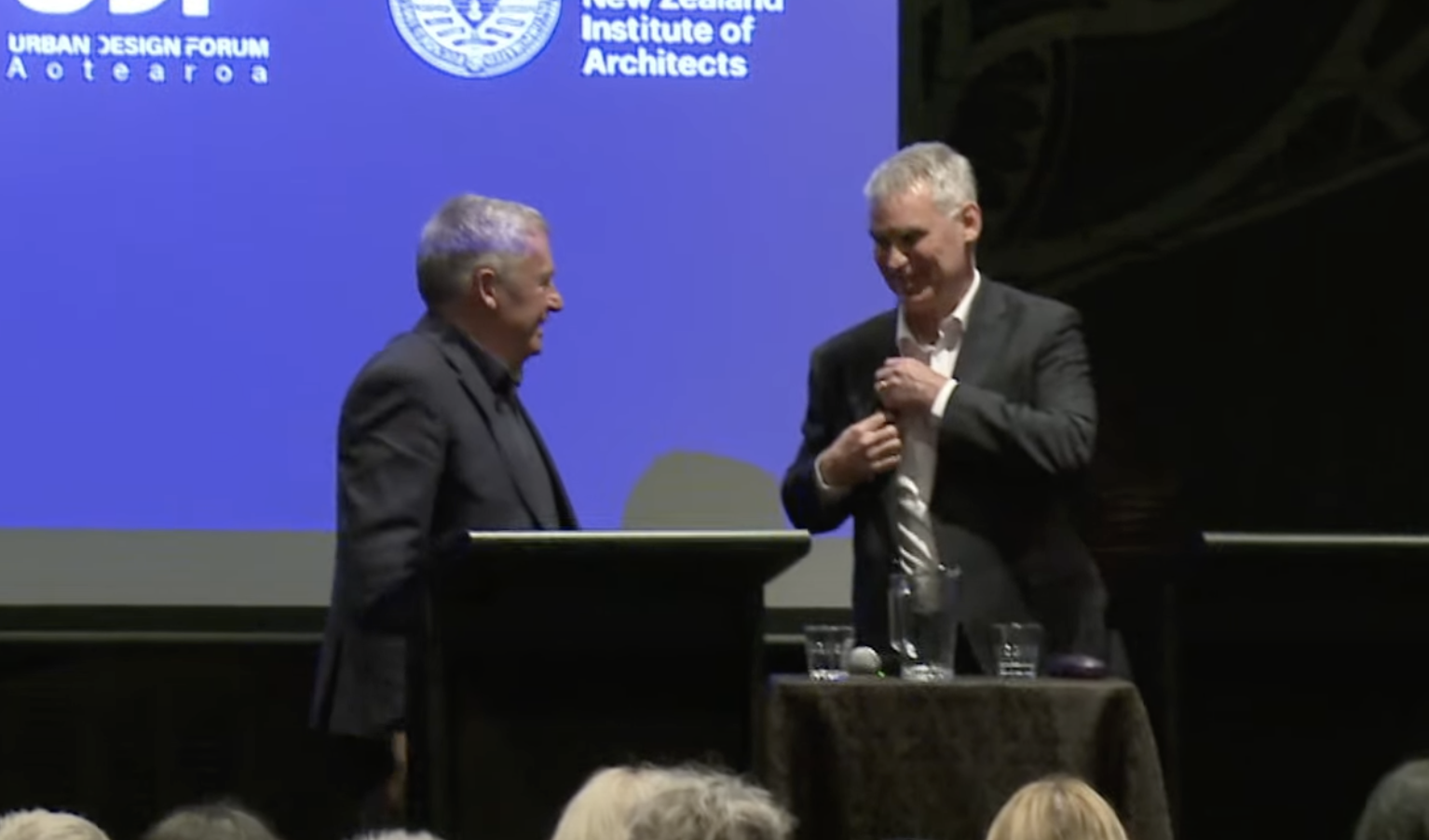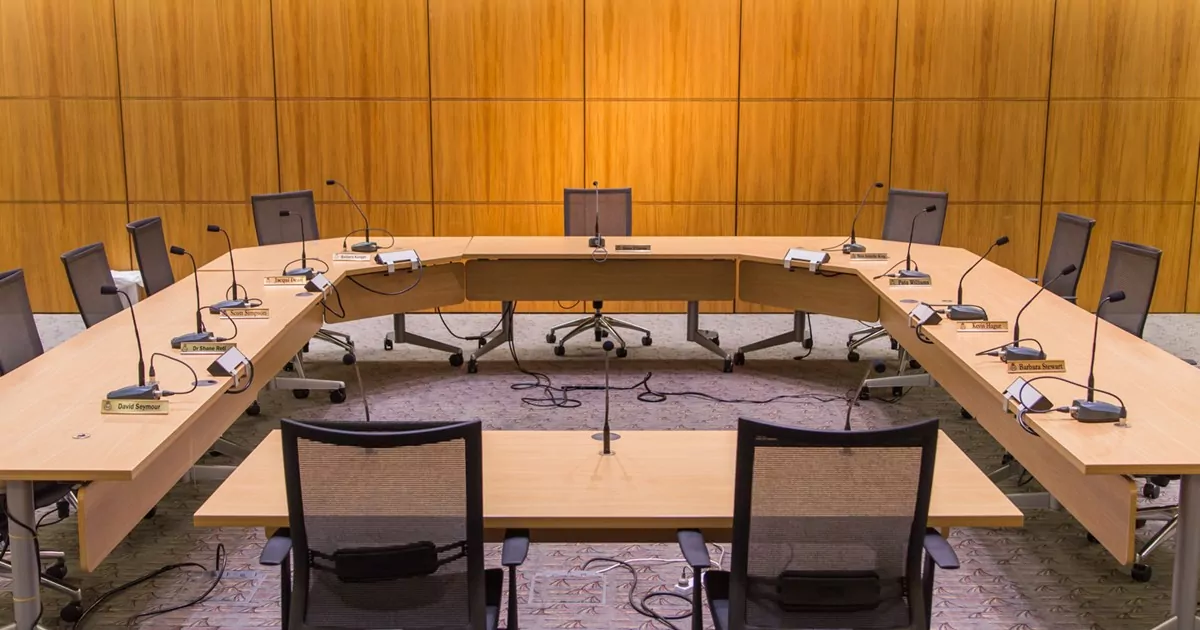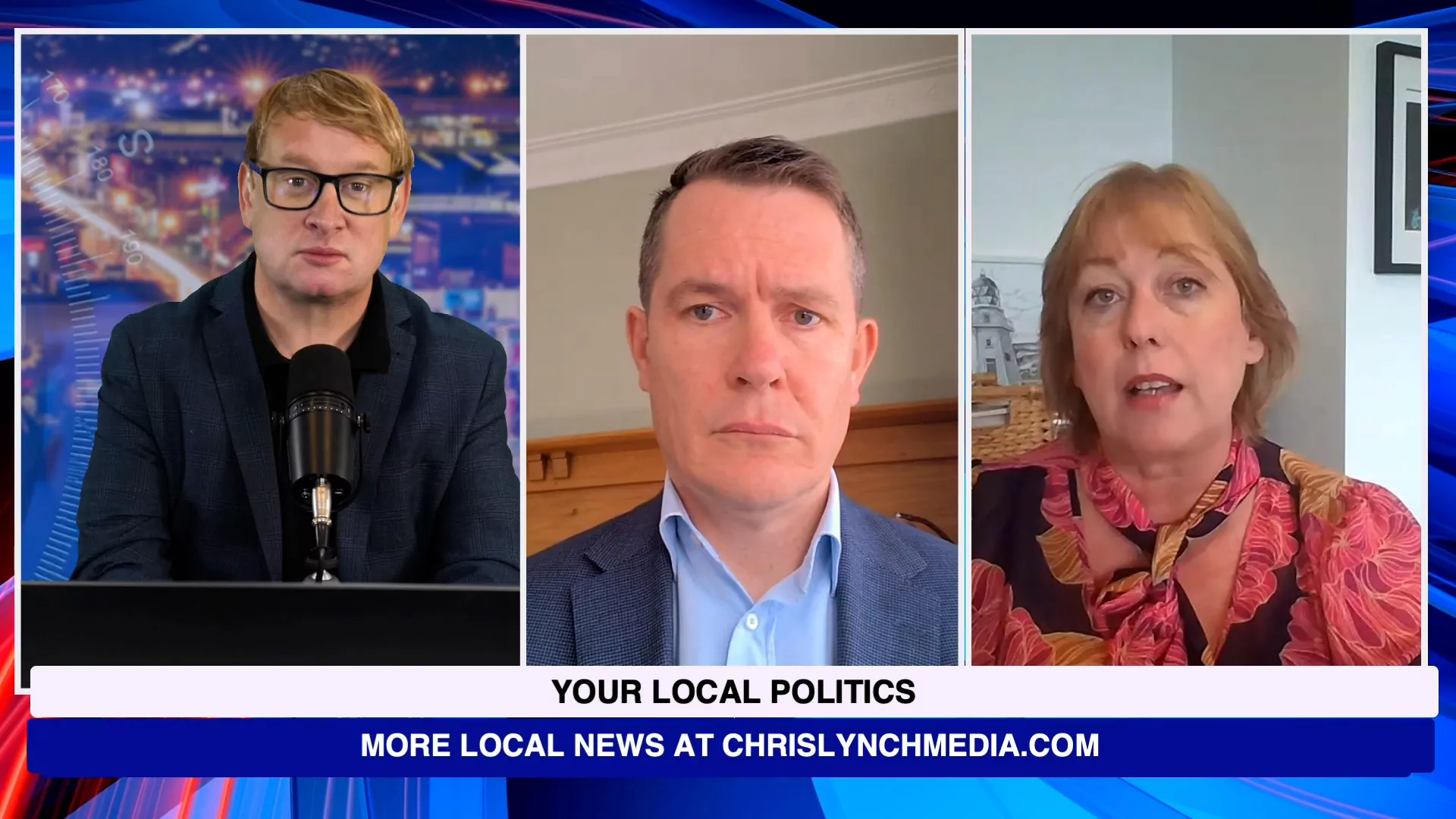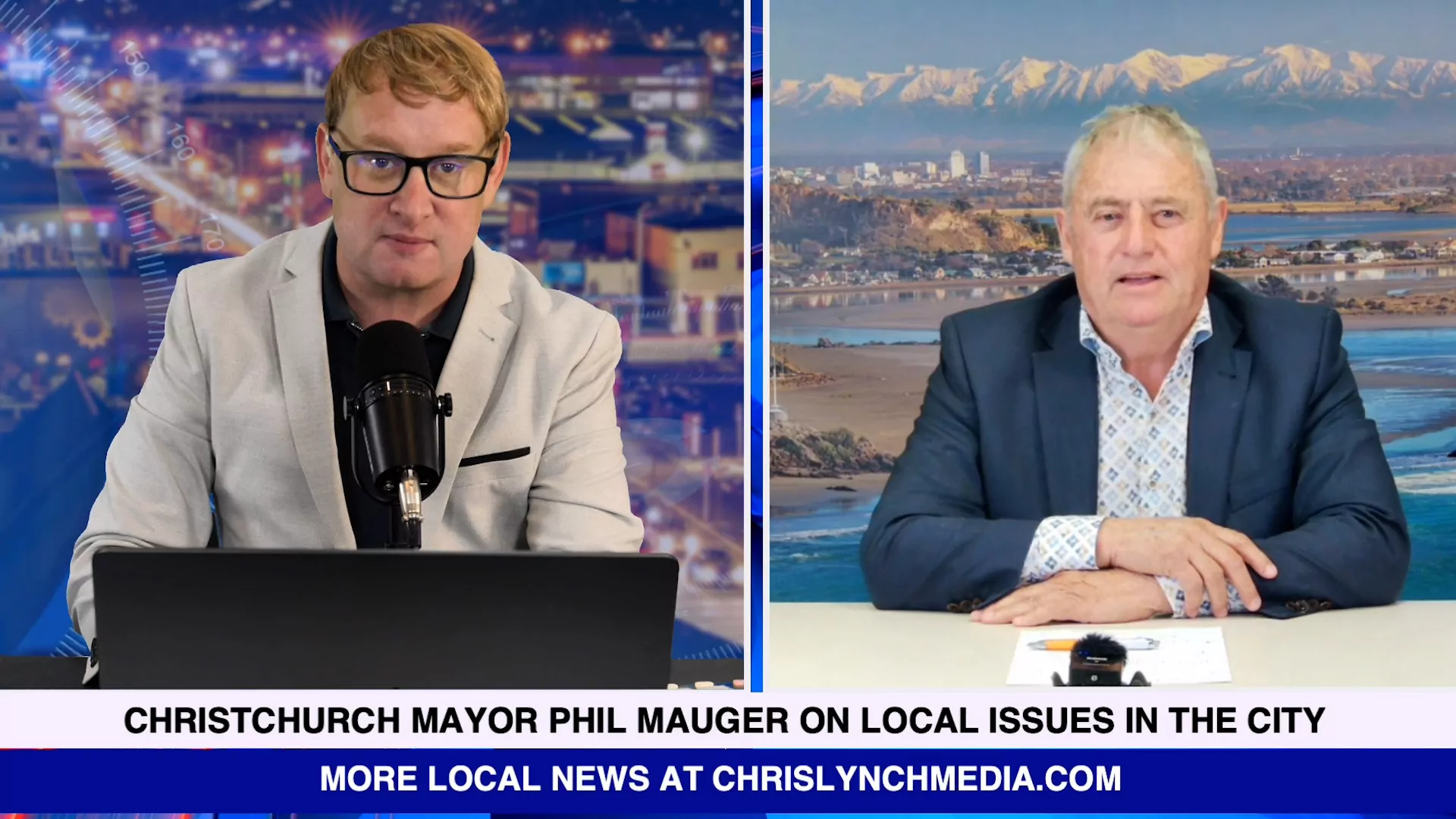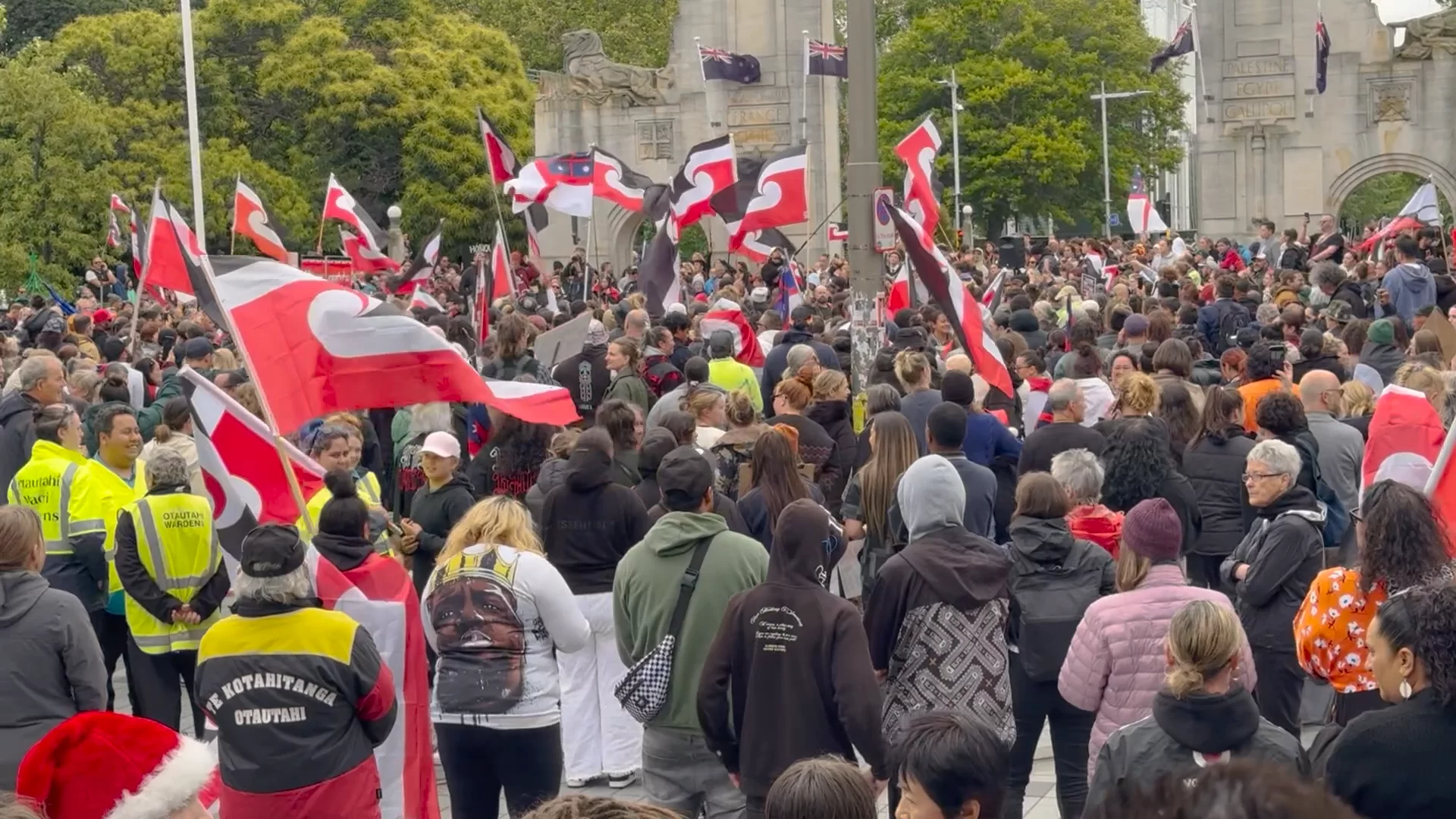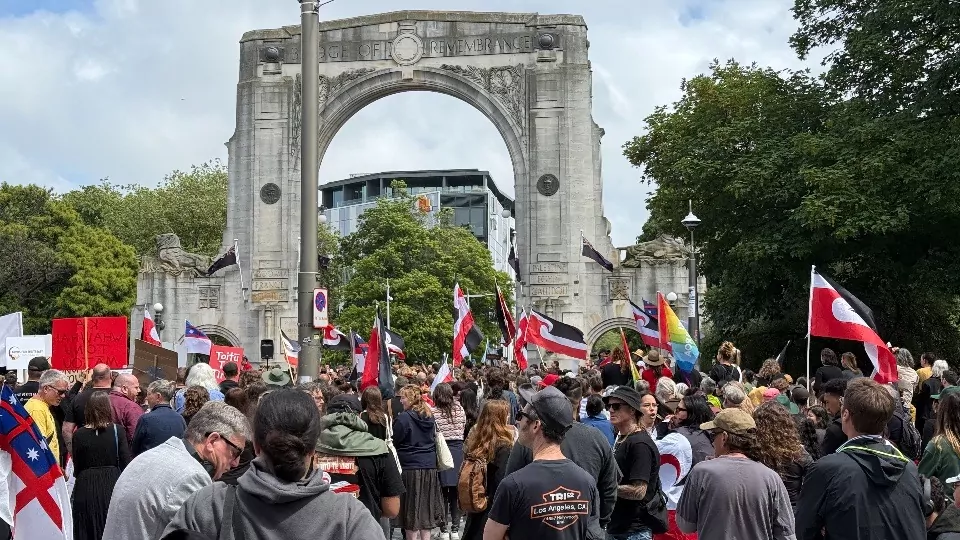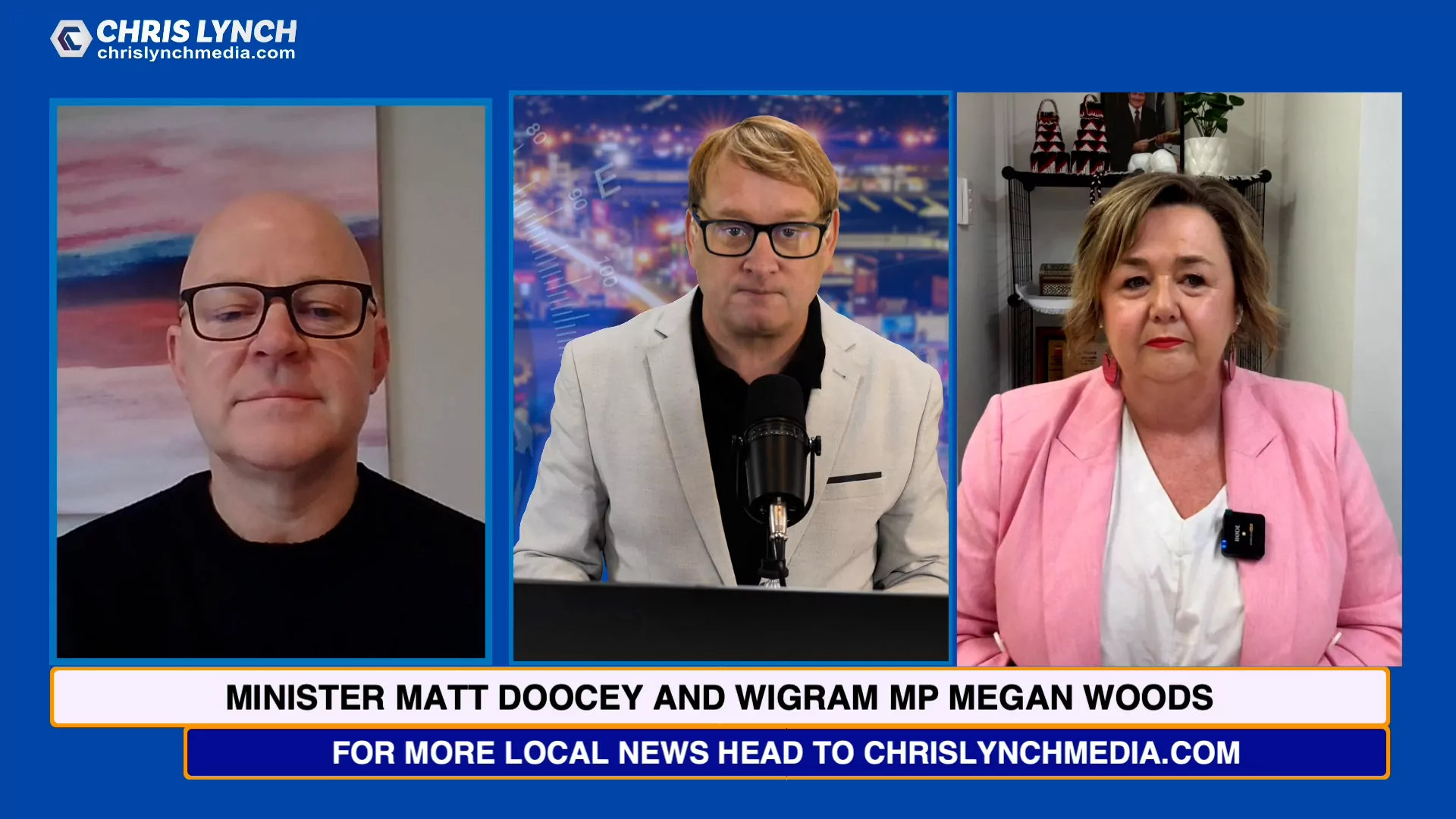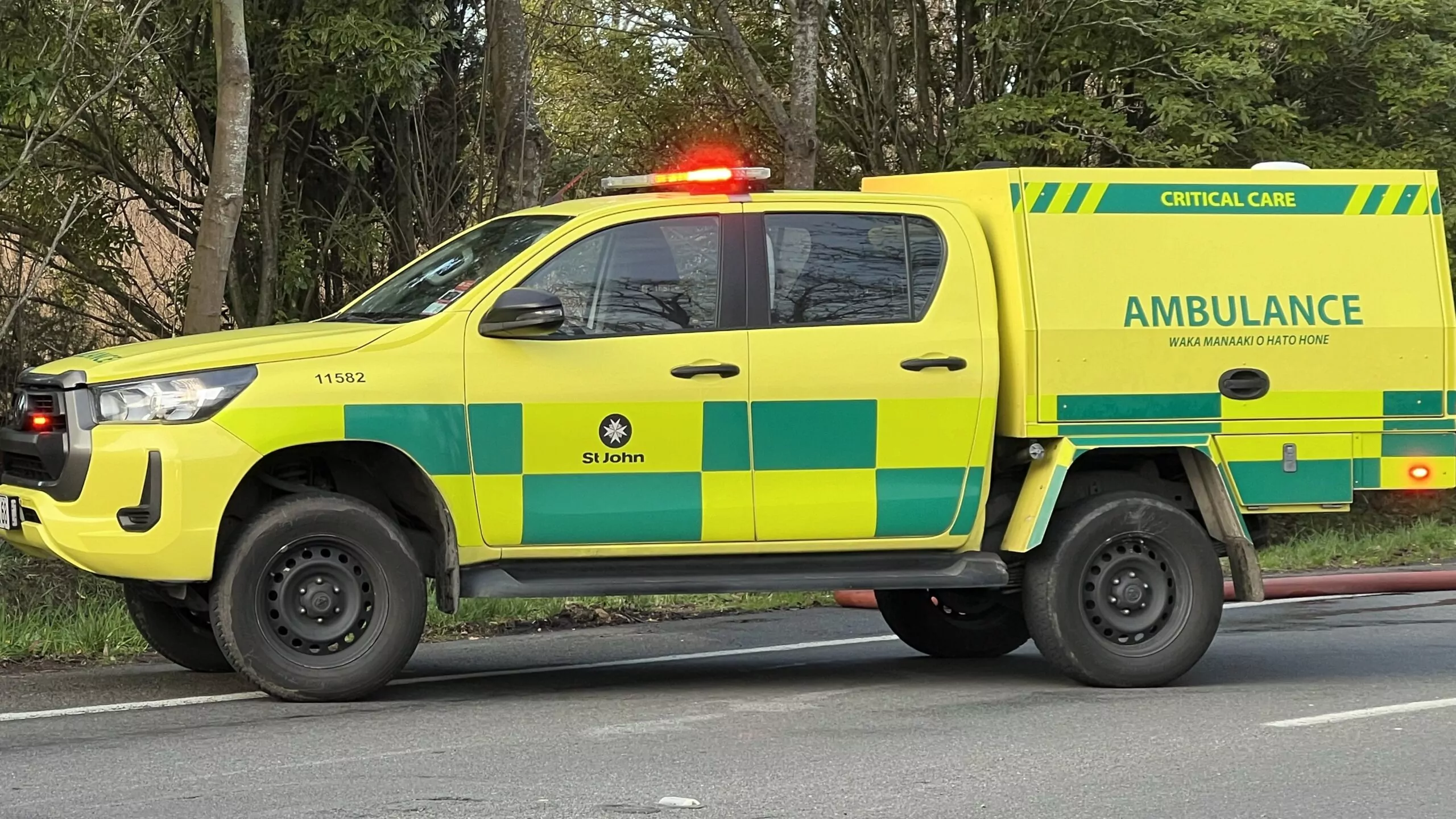Screen shot from Press Debate
It was a polite, yet underwhelming mayoral debate at Christchurch’s central library Tūranga tonight, plagued by technical issues and loaded questions.
Despite this, candidates David Meates and Phil Mauger performed reasonably well, although neither set the world on fire.
Meates came across more polished of the two, as you’d expect with his background as the former CEO of the Canterbury District Health Board. However, his polished performance didn’t make him relatable.
Mauger, although not a natural public speaker, spoke well, when he wasn’t being interrupted by co-host Jessica Halliday, director of Te Pūtahi.
As expected, the cycling advocate wasn’t a major fan of Mauger, although she did well to move him along with his answers.
When asked about the relationship between central Government and the Christchurch City Council, Meates said the two organisations needed to “work collectively to focus on how do we make this fit for Christchurch.”
“I think the door has been opened with some of the reactions of saying we want to have the conversation with Christchurch, but we don’t understand you. And one of the things I know from bitter experience is Wellington has a very different view of Christchurch and Canterbury than we sometimes have of ourselves. And that’s an important part of building the relationships and the bridges. We are going to have to take the first steps to help bridge that gap. But also with very much a mind, a solution that’s going to work for us.” – What does that actually mean? The audience knew and responded accordingly with applause.
Halliday asked the candidates how they would make densely populated areas more livable, a fantastic question, given the dog kennels popping up all over the city.
“They’re really wonderful examples, right throughout the world where intensification has been done really, really well. But the one thing that is in common with all of those is they have been done with communities and they have been deliberately designed and planned.” Meates said.
“I think what often happens is we do it in our hodgepodge manner.”
Mauger said “you’ve got intensification quietly happening all over Christchurch. As we speak. After the earthquake, I was under the impression that we were never going to build anything tall again. We do definitely need intensification by the major bus routes.”
He said providing neighbourhood parks was one way to make cities more livable, along with 20% tree cover on all the new buildings.
Halliday pressed for more from the candidates asking about roads in communities. (I got the impression she was after a shining endorsement of cycleways – but it never happened.)
Instead, Meates said, “transport needs to not just be cars or cycleways or public transport or light rail or those, it needs to be a combination that is easy to use, and well connected and integrated, as opposed to a lot of stuff that is actually very really siloed at the moment.”
Halliday, then turned to Phil. “I’m still interested in a more livable neighbourhood, I mean, I think this might be key to making intensification work for Christchurch” and then presented her enthusiasm for 15-minute neighborhoods, where households live within a 15-minute walk from core amenities like shops and Doctor surgeries and public parks.
Both candidates liked the idea, but neither had examples of how it could work.
“Wellington just reduced 80% of the roads to a 30-kilometre an-hour limit is that something that appeals to you?”
Mauger said “I’m happy with 30 kilometres an hour.”
“Everywhere like they are getting in Wellington?” Halliday asked.
“I don’t think so. 30 kilometres an hour in our suburbs is feasible. We’re doing 40 at the moment in some of our areas.”
“Yeah some of them I mean, 30 is far less hurty” Halliday said.
Both candidates were asked how they would address the impact of flooding and coastal erosion for vulnerable areas.
Meates gave a spectacular long-winded answer… (stay with me on this)
“You know, one of the first bits is actually we’ve got to see it as real. And that becomes a priority that they’re going to be affected communities. And it’s really easy to look at some communities and say it’s their issue. I actually think it’s a broader city issue, and that we are going to need to look at both adaptation-managed retreat and strategies, but if we’re going to do that we’ve got to do it with communities and actually, community being involved in helping to plan and decide what. Managed retreat is not the answer for everything, adaptation is not the answer for everything, but there are combinations that are actually going to make the impact a wee bit less on some of those communities.”
Mauger said “in 2018, the council commissioned the NIWA sand report, which shows we’re not getting coastal erosion. It’s not to say it won’t happen in the future, but it’s nowhere near as bad as what we’ve been told.”
Mauger said the report took too long to be made public. “But it’s not as bad as things like the situation for Peter Timbs Meats, which you will have all seen.”
Press editor Kamala Hayman asked Phil what his “bold move was” to meet the council’s goal of halving carbon emissions. Hayman would have received a better response if she started with “why should the council” or “do you agree with the council.”
Phil wanted more efficient bus services and pointed to his experience of seeing empty buses.
Meates said “if we’re really going to be serious about shifting people’s transport and how people go around the city, we have to make buses reliable.
We can’t keep preaching to people and telling them they need to use the bus, or they need to go on a cycle because that’s not what do you.”
That wouldn’t have gone down well with Kamala, whose newspaper has just run a series promoting cycleways.
Mauger said “people say cycleways are over-designed. They’re not, they’re just costing too much.”
On Maori issues, Meates said “If we’re really going to be true to the city, it needed to be a genuine partnership.”
Mauger said there were some very important things coming for Christchurch, and the council needed to have them on the same team,
Last week he voted for the council to leave the community group on Three Waters, acknowledging Iwi’s displeasure at that relationship.
Perhaps the most interesting question was what their favourite public space was.
For Phil, it was Cramner Square, for David it was the Christchurch Port Hills.
Phil was against reducing the voting age to 16, saying teens that age lacked maturity, while David was for the proposal.
When asked about what they would do for the arts in Christchurch, David went off on some tangent about what Christchurch’s new narrative should be and discussed what “our story was.”
He said we needed to come up with the city’s narrative.
I suspect he’s been in deep conversations with one of his campaign members, who’s contracted by ChristchurchNZ to research the “city’s narrative.” Amazing what people are paid to do isn’t it?
The sad part about the evening was I got the impression both men are capable of leading the city, and it’s just a shame that one of them won’t.
